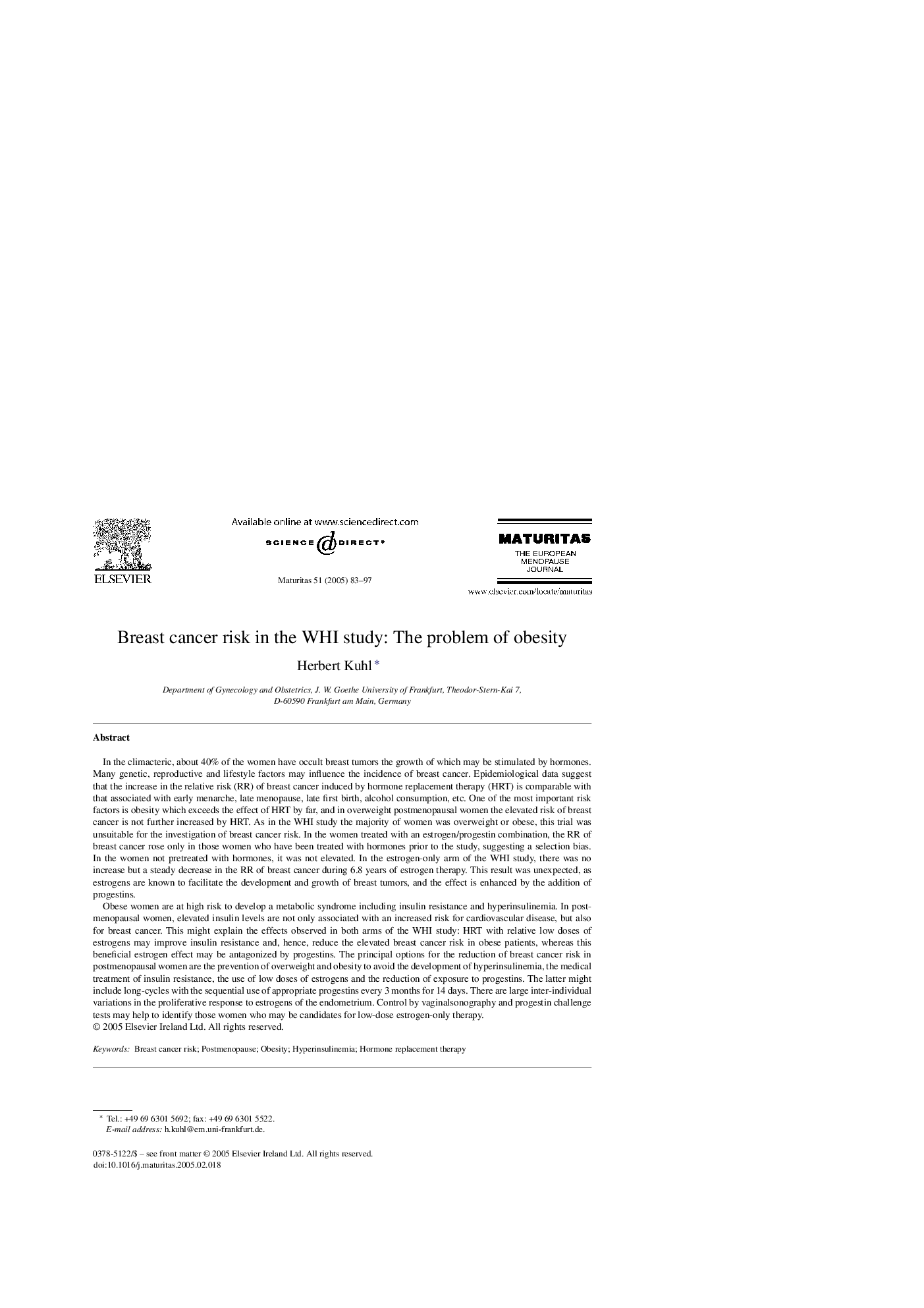| Article ID | Journal | Published Year | Pages | File Type |
|---|---|---|---|---|
| 10743901 | Maturitas | 2005 | 15 Pages |
Abstract
Obese women are at high risk to develop a metabolic syndrome including insulin resistance and hyperinsulinemia. In postmenopausal women, elevated insulin levels are not only associated with an increased risk for cardiovascular disease, but also for breast cancer. This might explain the effects observed in both arms of the WHI study: HRT with relative low doses of estrogens may improve insulin resistance and, hence, reduce the elevated breast cancer risk in obese patients, whereas this beneficial estrogen effect may be antagonized by progestins. The principal options for the reduction of breast cancer risk in postmenopausal women are the prevention of overweight and obesity to avoid the development of hyperinsulinemia, the medical treatment of insulin resistance, the use of low doses of estrogens and the reduction of exposure to progestins. The latter might include long-cycles with the sequential use of appropriate progestins every 3 months for 14 days. There are large inter-individual variations in the proliferative response to estrogens of the endometrium. Control by vaginalsonography and progestin challenge tests may help to identify those women who may be candidates for low-dose estrogen-only therapy.
Related Topics
Life Sciences
Biochemistry, Genetics and Molecular Biology
Ageing
Authors
Herbert Kuhl,
